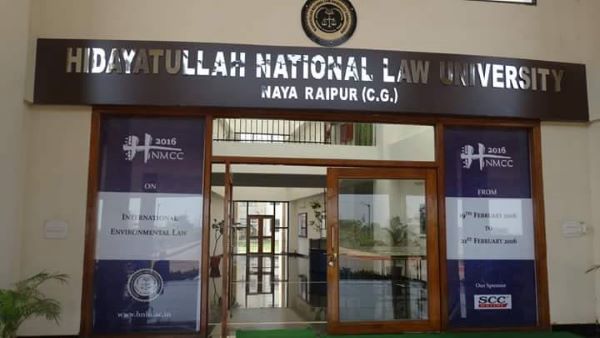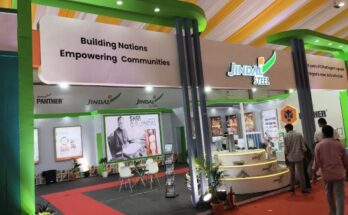
Team News Riveting
Raipur, January 31
Hidayatullah National Law University (HNLU) hosted the 2nd Mahatma Gandhi Memorial Lecture on Monday to mark the martyrs’ day.
Justice Aniruddha Bose, Judge Supreme Court of India and the Visitor of HNLU was the Chief Guest for the event and delivered a lecture on the topic of ‘Changing Contours of Public Law Remedy’. Justice Arup Kumar Goswami, Chief Justice of High Court of Chhattisgarh and Chancellor, HNLU graced the occasion as the Guest of Honour.
Prof. Dr. V. C. Vivekanandan, Vice-Chancellor of HNLU, in his opening remarks highlighted that various legal systems in many jurisdictions is all about regulating behaviour and penalizing those who do not obey the law, whereas the central of the philosophy of Mahatma Gandhi is the prescription love and non-violence which is opposed to any form of mental or physical violence. He opined that many of these convictions and prescriptions of Mahatma are too far-fetched in the current world legal systems and hence he is kept in a pedestal as a philosopher of life but not to be in the pantheon of Jurists.
Justice Arup Kumar Goswami highlighted that even though Mahatma Gandhi started his journey lawyer, nonetheless, he was a well-known humanist par excellence who fought for injustice and whose redefined ethical values should be followed by every citizen. Justice Goswami also highlighted about Judicial review and remarked that the process legitimizes striking down legislative, executive, and quasi-judicial actions and confers the power to interpret the constitution on the judiciary which further strengthens the principles of Constitutionalism.
Further, he also observed that the judicial institutions have undergone massive transformation in the past seven decades and have emerged as dynamic institution playing an active role in expanding the scope and content of an individual and collective rights of citizens. Even though it is considered to be a remedy of last resort, the process of judicial review should be invoked to examine and determine the fairness in the decision-making process and the Constitutional Remedies so enshrined are instrumental in achieving the same.
Justice Aniruddha Bose, in his memorial lecture on the topic of ‘Changing Contours of Public Law Remedy’highlighted that Mahatma Gandhi was a reconciler himself who advocated for the path of negotiations to resolve the disputes, a methodology, towards which the contemporary dispute resolution system is gradually progressing. Highlighting the evolving nature of disputes in the past few decades post-independence and the impact of global developments on this evolving jurisprudence, Justice Bose observed that Public Law essentially refers to the relationship between state and its citizens as defined by law and accordingly, Public Law Remedy aims to ensure that the constitutional remedies are available to citizens to protect their entitlements.
He observed that until a few decades, the presence of state was felt in every walk of life and the scope of judicial review was to ensure that the activities of the state are within the constitutional boundaries and that the state had to conform to the constitutional requirement of not acting arbitrarily and following the due process and complying with the principles of natural justice. However, today, the state is in process of withdrawing from many essential activities which are being outsourced and global & technological interactions and interdependencies are also increasing. Therefore, it is significant to examine the role of Public Law in this context and particularly pertinent to examine if the role of public law is diminishing in its relevance or if its role is rejuvenating into a new form. More importantly, he emphasized on examining the role of private sector while performing a public duty which is an emerging area in the contemporary times.
Highlighting the paradoxical nature of the exercise, he opined that on one hand, the remedy of Public Law is striving to ensure that justice is made accessible to all through the process of public law remedies whereas on the other hand, judicial remedies can also be seen as limiting the no. of litigants through the process of ADR. He opined that it’s better to have docket explosion instead of empty dockets as the earlier resonates with the faith of the people on the judicial remedies. The legal community needs to innovate to ensure that every person who is deprived of their entitlements can come to the court and have their grievances redressed. He concluded his lecture by quoting Oliver Wilde.



